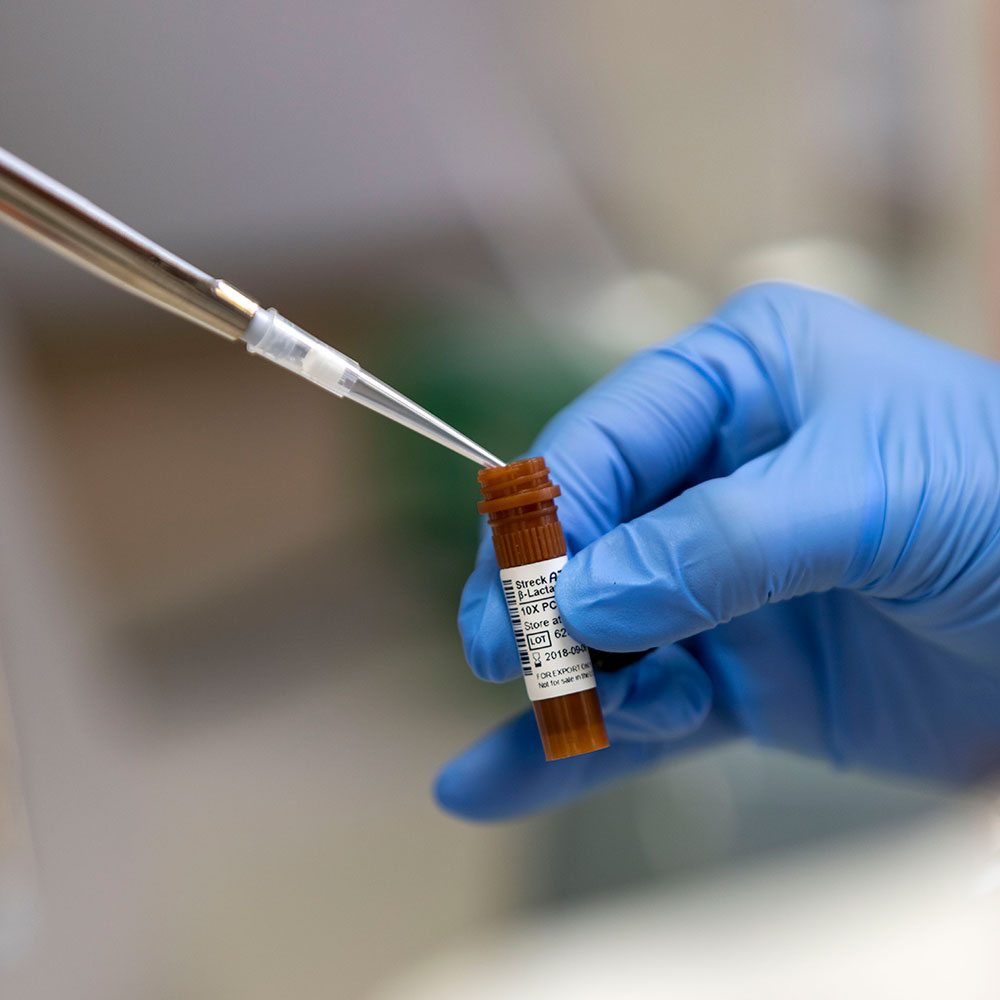Antimicrobial resistance in pets
Antimicrobial resistance (AMR) has become a significant public health issue globally, including in the United States. The issue is a worsening problem as AMR is developing in human pathogens faster than novel antibiotics can be formulated. According to the Centers for Disease Control and Prevention’s 2019 Antibiotic Resistance (AR) Threats Report, more than 2.8 million AMR infections occur in people in the United States each year, with more than 35,000 resulting fatalities.
The presence of AMR pathogens in food-producing animals has received much attention and is the subject of national monitoring programs as part of the effort to prevent serious infectious outbreaks. However, antibiotic-resistant bacterial infections are far more likely to occur in companion animals than in food-producing animals.
Untreatable bacterial infections in companion animals are a serious concern for two reasons. First, these infections are a serious risk to the health and life of the animals and may spread within veterinarian clinics and other venues where companion animals congregate. Second, zoonotic transmission between pets and their human contacts may occur and result in AMR infectious outbreaks of human pathogens. To underscore this point, a 2014 microbiology study found that within households, humans and pets readily exchange and share the clinically significant pathogen methicillin-resistant S. aureus (MRSA).
Companion animals may serve as carriers of MRSA, mcr-1-producing E.Coli, Salmonella and other drug-resistant Gram-negative bacteria.
Besides MRSA, companion animals may serve as carriers and reservoirs of other significant human pathogens, most notably the mcr-1-producing colistin-resistant E. coli, Salmonella species and other drug-resistant Gram-negative bacteria. Although the risk of zoonotic serious AMR infections transmitted by pets is relatively low, the risk of serious untreatable infections in animals is becoming a threat to the pets themselves.
In response to the growing public health threat of AMR pathogens, in 2014 the U.S. federal government launched a national strategy for combatting the threat, spear-headed by the Food and Drug Administration, United States Department of Agriculture, and CDC. A large part of this strategy is a monitoring program – the National Antimicrobial Resistance Monitoring System (NARMS) – that involves extensive surveillance for AMR at multiple levels of government. However, NARMS does not track AMR in companion animals, leaving veterinarians and veterinarian hospitals to fend for themselves in the face of this burgeoning problem.
There is a need for a national AMR surveillance program in the United States for companion animals. In the meantime, antimicrobial stewardship in companion animal medicine is rapidly expanding to fill that need. A crucial part of this approach to limiting and containing the threat of AMR to pets and their owners includes clinical microbiology surveillance, with a focus on identifying drug-resistant organisms. Even though the United States is currently lacking a national strategy for AMR surveillance in companion animals, animal-care professionals at all levels of care can apply the same principles used in the NARMS to their own antimicrobial stewardship efforts.
Streck offers cutting-edge AMR detection kits that allow animal care professionals to perform internal surveillance using innovative DNA technology. Streck’s proprietary ARM-D® AMR surveillance kits offer the comprehensive capability to identify over 1,000 antimicrobial resistance gene variants from 26 different gene target families. These versatile kits are compatible with your lab’s own 4-channel PCR system and are easily integrated into your existing procedures and protocols.

As a biotechnology industry leader, Streck is continually engaged in research and development to stay ahead of the rapidly evolving AMR threat, making us the perfect partner for rigorous antimicrobial stewardship. For more information about our comprehensive line of antibiotic resistance detection kits and to browse webinars, talks and posters related to ARM-D kits, visit our resource page.
Streck ARM-D Kits are for Research Use Only. Not for use in diagnostic procedures.


How can wastewater predict the future?

